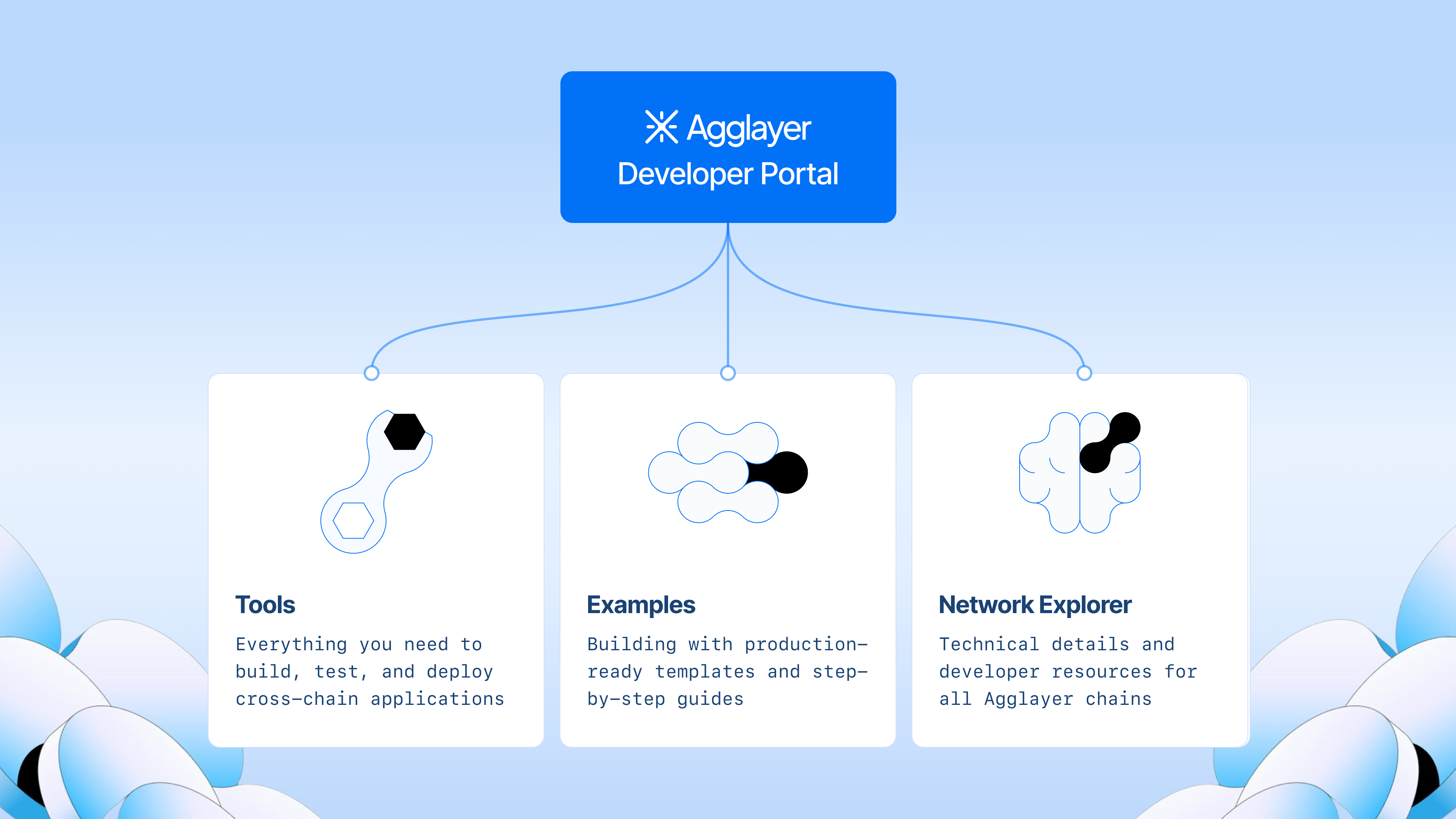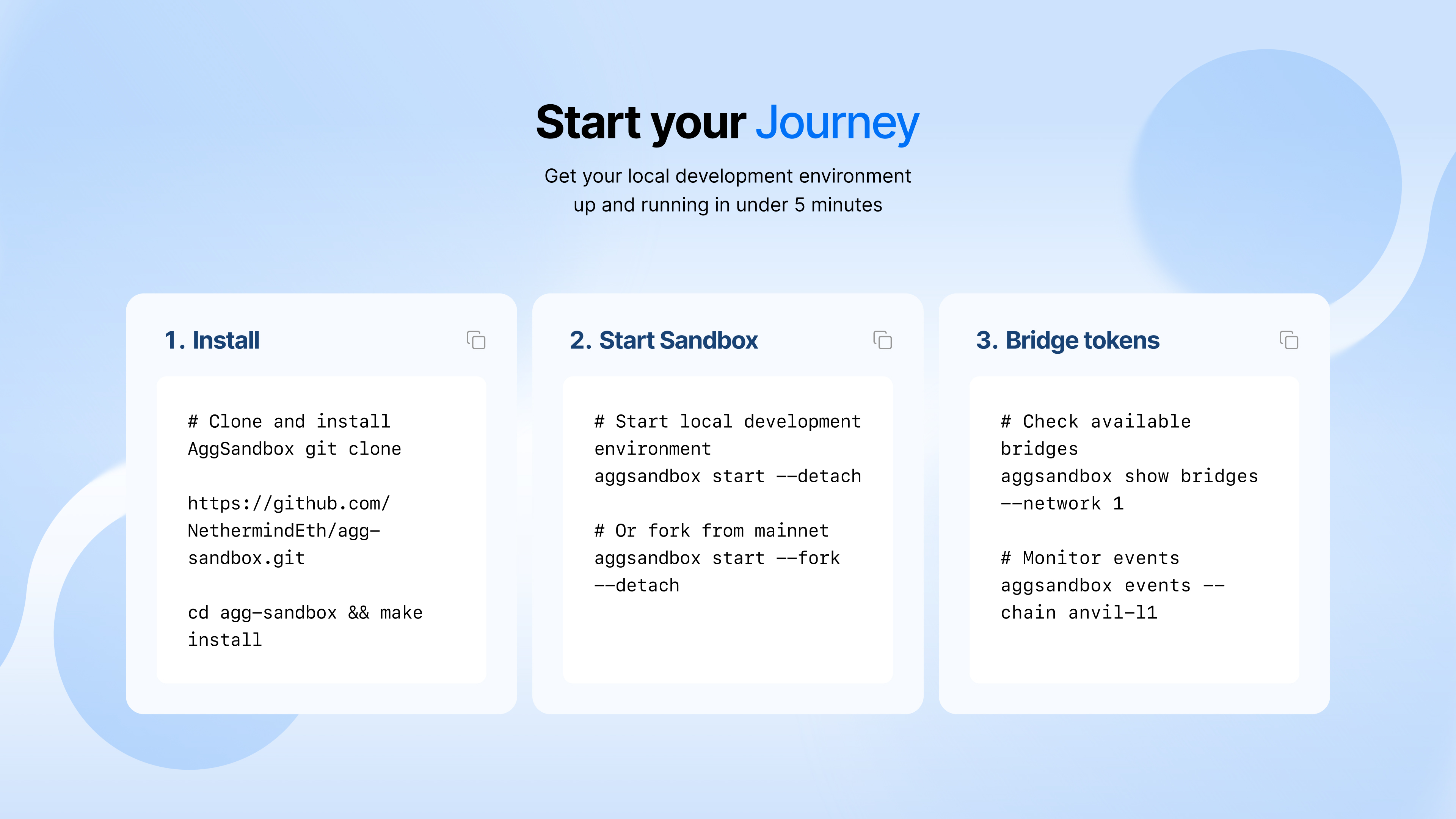Cork Joins Agglayer’s Vault Bridge to Bring Instant Liquidity to Katana and Beyond


Agglayer just got its own sandbox.
Introducing the Agglayer Developer Portal, built by Polygon Labs. The Developer Portal gives enterprises and builders a local environment to test and deploy multichain applications.
Features include:
For protocol developers, CTOs, and any enterprise evaluating how to break into crypto, the Agglayer Dev Portal gives you the tools you need to build the application you want.
Build a DEX with native crosschain interop logic, program a multichain lending pool, create an expansive NFT marketplace, and do whatever else you can dream up. The Portal enables you to see assets move securely across chains in minutes.
This is your one-stop shop to build an app for unified liquidity and seamless, crosschain interop,, with the SDK, infra, and tutorials you need to experiment, stress-test, and demo.
Agglayer is declustering crypto.
Right now, ecosystem lock is a crypto reality. Build on Ethereum or Solana, get clustered with OP Stack or Arbitrum. When apps and enterprises want to go multichain to tap more users and liquidity, they’re forced to rely on complicated logic, redundant deployments, and additional trust assumptions.
Agglayer is different. It is already multistack, with a vision to unify all crypto. Layer 1, Layer 2, Layer whatever—doesn’t matter.
Instead of each chain maintaining its own bridge contracts, the Agglayer uses a Unified Bridge on Ethereum so assets remain fungible no matter where they originate. The novel Pessimistic Proof ensures no chain can withdraw more than it deposited. The aggregated ZK design removes the need for a seven‑day fraud‑proof window and offers near‑instant settlement finality.
With dozens of chains already connected, and dozens more poised to join the Agglayer, providing a safe environment for experimentation accelerates ecosystem growth.

The Dev Portal gives builders a taste of what Agglayer features will look like.
Use the AggSandbox to spin up multiple simulated Agglayer‑connected chains (Aggchains, if you will) on your machine. You can experiment without paying gas fees or waiting for Ethereum finality. The sandbox pairs nicely with lxly.js, the JavaScript SDK that abstracts away much of the crosschain plumbing.
The templates section houses full‑stack example applications, like a crosschain DEX or multichain lending pool. Each template can be forked to your local machine. Running these examples in the AggSandbox lets you see how Agglayer interop moves assets and messages under the hood.
The explorer lists chains connected to the Agglayer, their network IDs, and RPC endpoints, providing a faucet for test tokens.
This makes it easy to identify which networks you want to simulate and grab tokens needed for your experiments.
The explorer also serves as a learning tool, illustrating how the Agglayer tracks each chain’s deposits and withdrawals through pessimistic proofs.
Crosschain development has been hampered by fragmented liquidity and inconsistent user experiences.
The Developer Portal translates the promise of a unified crypto into something developers can touch. Instead of reading about the Agglayer’s architecture or waiting for a testnet to integrate, you can build apps right now, share feedback, and even influence protocol development.
Building locally also reduces risk.
Test edge cases like failed crosschain calls or unpack how a DEX handles slippage when liquidity spans multiple chains. The Portal’s examples are open source, so you can fork them, replace the UI or integrate new smart contracts.
By the time the Agglayer achieves sub‑five‑second finality and more chains join, you’ll be ready to deploy a polished product.

The Developer Portal is just the beginning.
Expect additional templates and tutorials, expanded chain integrations for more reach, and community challenges that reward cross‑chain experimentation.
The Agglayer is growing. The roadmap is coming together. Each new update brings us a step closer to a unified, interoperable blockchain web.
And developers finally have the tools to start building on it.
If you’re a builder curious about cross‑chain applications, head over to the Agglayer Developer Portal and see how far you can push the boundaries of interoperability.
